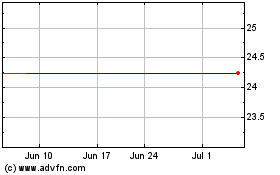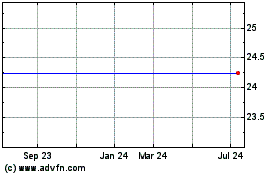UPDATE: New UnitedHealth Unit Starts Offering Hearing Aids
October 03 2011 - 2:08PM
Dow Jones News
Health-insurance giant UnitedHealth Group Inc. (UNH) is adding a
new dimension to its increasingly broad suite of health-care
products: hearing aids.
Monday, a new UnitedHealth business launched four different
kinds of hearing aids, made by supplier IntriCon Corp. (IIN), with
a goal of helping reach millions of people who don't get the
devices due to high costs and lack of insurance coverage.
Shares of IntriCon soared on the news and were up 30% recently
at $3.98. UnitedHealth shares fell 4.7% to $43.94 as the broader
market declined.
The move comes as insurers kick off marketing efforts for their
2012 Medicare-based plans. UnitedHealth is offering new hearing-aid
benefits in such plans, but also is selling devices on a retail
basis over the Internet, injecting it into a multi-billion-dollar
market where major players include European companies Sonova
Holding AG (SOON.VX), Siemens AG (SI, SIE.XE) and William Demant
(WDH.KO).
UnitedHealth is using its scale--with the entire company
projecting $101 billion in sales this year--plus a proprietary
Web-based hearing test to offer an alternative to a supply chain it
says can lead to devices that are too expensive for many people.
The move drew criticism from a professional group of hearing
experts, which said online hearing tests can't replace face-to-face
exams.
"Our goal is to put better hearing within reach of more
Americans, including the 47 million with Medicare, which does not
cover the significant cost of hearing devices," said Lisa Tseng,
chief executive of the new hearing-aid business, called hi
HealthInnovations.
UnitedHealth, based in Minnetonka, Minn., has been expanding its
business far beyond the bounds of health insurance. It has a broad
array of health-services offerings, including its
pharmacy-management business, and it has acquired physician groups.
The latest venture marks UnitedHealth's first foray into
medical-device sales, and the company believes it is the first in
the industry to make such a move.
The U.S. market for hearing aids and other so-called audiology
devices is valued at more than $5.7 billion, according to
Vancouver-based iData Research. About 36 million Americans have
hearing loss, and the number is poised to grow as baby boomers
age.
The UnitedHealth businesses' hearing aids will retail for
between $749 and $949, which compare with typical prices that can
reach thousands of dollars. The new business also is contracting
with several UnitedHealthcare Medicare-based plans to make devices
available to members in most U.S. regions at a "sharply lower cost"
than people typically pay, the insurer said. There will be no
out-of-pocket hearing-aid costs for some Medicare Advantage
members, and devices will be available with significant discounts
to members in Part D prescription-drug plans and some Medicare
supplement plans.
Previously, the company said industry Medicare plans had some
discounts on the devices, but such discounts have been limited by
high costs and lack of Medicare coverage.
UnitedHealth is keeping costs low by simplifying the route for
patients to get hearing tests and, if necessary, hearing aids. It
has an online test designed to work with earphones and is planning
a mobile application for smart phones and tablet computers. Based
on the results, hi HealthInnovations will custom program hearing
devices.
"We're really leveraging UnitedHealth Group's scale and our
membership base" to keep costs low, Tseng noted. The company will
refer patients to physicians if hearing tests indicate more serious
problems, Tseng said.
Therese Walden, president of the American Academy of Audiology,
a professional group of hearing experts, said mark-ups for hearing
aids cover the cost of important services that benefit patients. An
online test can't take into account all the variables that impact
successful treatment for hearing loss, she said, and audiologists
help patients maximize the potential of their hearing aids.
"Skimping on the cost-effective tests and care provided by the
audiologist, which helps to ensure accurate diagnosis and effective
short and long-term care, is not smart," Walden said.
IntriCon said the time and resources spent securing the
UnitedHealth agreement and preparing for launch have adversely
affected the company's financial performance. But the Arden Hills,
Minn., company said it expects "meaningful revenue" from the new
hearing-aid program starting in the first quarter next year.
-By Jon Kamp, Dow Jones Newswires; 617-654-6728;
jon.kamp@dowjones.com
Intricon (NASDAQ:IIN)
Historical Stock Chart
From Apr 2024 to May 2024

Intricon (NASDAQ:IIN)
Historical Stock Chart
From May 2023 to May 2024
